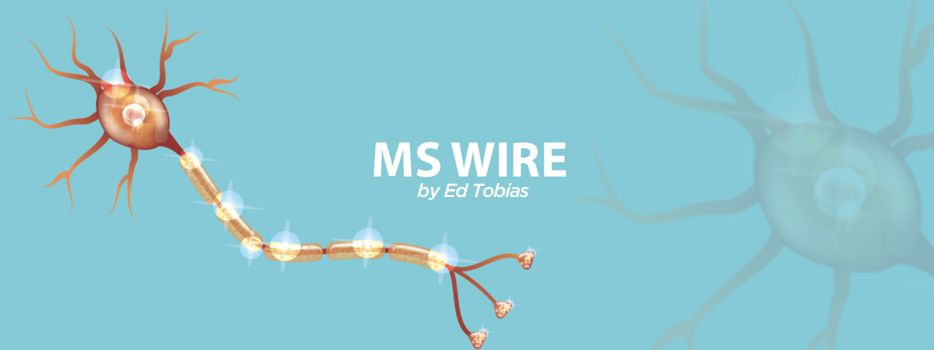MS News That Caught My Eye Last Week: Stem Cell Study, Protein Predictor, Tolebrutinib and STEP Trials

Stem Cell Therapy Shows 2-year Benefit for Progressive MS Patients in Phase 1 Trial
Stem cell studies always catch my eye. This very small study involves people treated with their own bone marrow, which was collected and expanded to give it the ability to modulate the MS immune response before being reinjected into their spinal canal. But despite what the headline says, the results only showed a two-year benefit for some of the patients. People who showed the most benefit were those with the lowest disability level at the start of the study.
There are a lot of facts and figures to consider, so be sure to read the entire story, not just my brief summary, to understand what’s happening here.
Lesser or stable disability over two years was evident in most progressive multiple sclerosis (MS) patients given a stem cell treatment in a small Phase 1 clinical trial, supporting a larger study now underway, researchers report.
These results suggest that a treatment using mesenchymal stem cell-derived neural progenitors (MSC-NPs) can safely and effectively ease inflammation in progressive MS.
Click here to read the full story.
***
Restoring Neuregulin-1 beta 1 Protein Levels May Help Halt MS Progression
It’s not unusual for an MS diagnosis to take a long time, sometimes several years. These researchers are considering whether it’s possible to use a particular protein as an indicator of whether a patient has MS. That might shorten the time to a diagnosis.
They also think that increasing the amount of this protein might delay the onset of MS, ease its symptoms, and delay progression. The protein would do this by blocking some rogue immune cells from entering the central nervous system, while also helping to boost the number of immune cells that repair the immune system. Wouldn’t that all be nice?
However, so far, it’s only been studied in mice.
The levels of a protein called Neuregulin-1 beta 1 (Nrg-1beta1) decline with the onset and progression of multiple sclerosis (MS), a new study suggests.
The findings support the potential of Nrg-1beta1 as a predictor of MS risk and progression and suggest that restoring its levels may help halt disease progression.
Click here to read the full story.
***
Progressive MS Patients Urged to Enroll in Phase 3 Trials of Tolebrutinib
These researchers are hoping to show that tolebrutinib will inhibit an enzyme that’s associated with MS inflammation caused by B-cells. They think the medication may also inhibit the activity of microglia, the immune cells in the brain that have been linked to MS progression.
Sanofi Genzyme, the trials’ sponsor, hopes to recruit 2,280 people, ages 18-55, with PPMS, and 1,290, ages 18-60, with SPMS, at centers in the U.S., Canada, and Europe. That leaves me, who is 72 years old, again asking why older people with MS seem to always be excluded from studies of new meds? We use DMTs too, you know!
Investigators are looking for people with progressive forms of multiple sclerosis (MS) to participate in two Phase 3 clinical trials assessing the safety and effectiveness of tolebrutinib (SAR442168), an oral BTK inhibitor that is being investigated as a potential treatment, the National Multiple Sclerosis Society announced in a press release.
Both studies — HERCULES (NCT04411641) and PERSEUS (NCT04458051) — are being sponsored by Sanofi Genzyme, the company that holds tolebrutinib’s commercial rights. The trials are recruiting participants at several locations across the U.S., Europe, and Canada.
Click here to read the full story.
***
US Patients Urged to Enroll in STEP for MS Trial Assessing 2 Exercise Programs
Here’s another study, and I love its goal: to determine how exercising at home compares with exercising at a gym, in terms of affecting our MS. I’ve always been a fan of exercise, because I think it helps me. Once again, however, there’s an age limit to the study. Why cut off participants who are older than 65? We exercise, too!
Adults with mild to moderate multiple sclerosis (MS) are being urged to participate in a new clinical trial — STEP for MS — that will assess the impact of two different exercise programs on patients’ mobility, walking abilities, and quality of life.
Funded by the Patient-Centered Outcomes Research Institute (PCORI), the STEP for MS trial expects to enroll around 400 MS patients, ages 18–65, who have difficulties walking and do not exercise regularly.
Click here to read the full story.
***
Note: Multiple Sclerosis News Today is strictly a news and information website about the disease. It does not provide medical advice, diagnosis, or treatment. This content is not intended to be a substitute for professional medical advice, diagnosis, or treatment. Always seek the advice of your physician or other qualified health provider with any questions you may have regarding a medical condition. Never disregard professional medical advice or delay in seeking it because of something you have read on this website. The opinions expressed in this column are not those of Multiple Sclerosis News Today or its parent company, Bionews, and are intended to spark discussion about issues pertaining to multiple sclerosis.







Leave a comment
Fill in the required fields to post. Your email address will not be published.